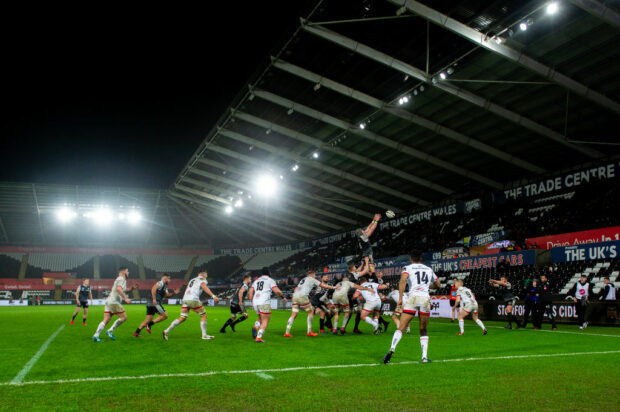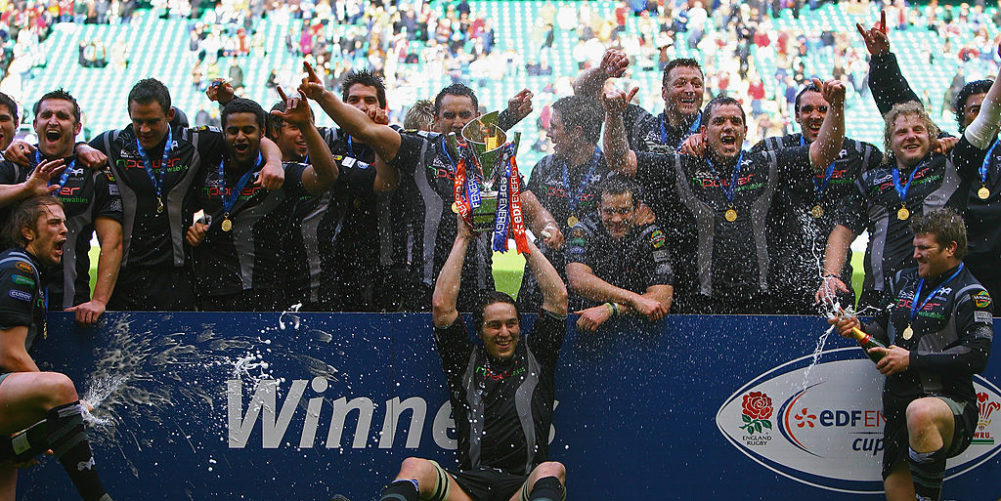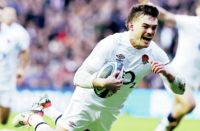Ospreylia runs across some of the most fertile footballing fields in Europe. What other region of any country could pack virtually an entire team off on Six Nations duty to Twickenham and beat England? Thirteen from one club in the same Test XV had never been heard of until Warren Gatland picked them en masse for his first match as Wales coach in 2008.
The Ospreys were so mob-handed with players from Swansea, Neath, Port Talbot and Bridgend that they only required a little help from two outsiders, a wing from Llandovery (Mark Jones) and a flanker from Pontypridd (Martyn Williams). Wales won 26-19, every point accounted for by a trio of Ospreys: James Hook, Lee Byrne, Mike Phillips.
Two months later, they were back at HQ on Ospreys' business, beating Leicester 23-6 in the Anglo-Welsh Cup final, long before the Tigers began to lose their growl. The Welsh birds of prey proceeded to pick Leinster off in two PRO12 finals.
That each required them to storm the mighty Irish province's bastille at the RDS amplified the sense of achievement. If they could cope with Leinster's all-international cast in Dublin, then surely Wales had at last found a team capable of winning the Heineken Cup which only goes to show how wrong you can be.
The Ospreys have fallen so far that now they struggle to beat anyone. They have gone from outpointing England and an all-Irish galaxy to being pulverised by Leinster (5-53), Scarlets (0-44), Saracens (3-44), Racing (19-40), and Munster (6-33) among others. Worse still, they were unable to make home advantage tell against the lamest of lame-ducks in the PRO14, the Southern Kings. The threadbare Port Elizabeth franchise won in Swansea last November, their solitary away win in three dismal seasons.
In the League of Pitifully Small Returns, the Ospreys almost matched them with two wins from 21 matches. The misery dragged on until last Sunday at Rodney Parade where they ended up bending the knee to another seriously under-achieving also-ran, Cardiff Blues.
That Ospreys have a track record for winning the PRO12-13-14, unlike their capital rivals, makes their demise all the more shocking. Even the taciturn Alun Wyn Jones, reduced to bystander status by the World Cup and long-term injury, spoke out.
“I'm not going to name names,'' he told BBC Wales in January. “But there were eyebrows raised about recruitment. There were a series of decisions and actions that probably haven't supported the rugby side of the business.''
They won the last of their four titles on May 27, 2012, Shane Williams' exhilarating last-minute corner try and Dan Biggar's touchline conversion making it the best of all Celtic finals. The starting line-up consisted of eleven more local players, one South African (Hanno Dirksen) and a Cornishman (Joe Bearman).
“Leinster had won the Heineken Cup the week before by a record margin over Ulster,'' says Bearman, now a medical rep. “So you're thinking: ‘This might be a struggle.'
“Then you'd think about the good record we had of winning in Dublin. You'd think about how they hated playing against the Ospreys. It was an amazing time to be at the Ospreys. I loved that team.
“After I left, I went back every now and then until it got to the point where I started not to know the team. The money was running out.
“They lost a lot of key players and they kind of missed what the team was all about. They needed more like Dan Lydiate, a massive professional. I played with players who were more talented than Dan but they didn't achieve anywhere near the same impact.You have to sacrifice so much and he did and still does.
“It's a shame the way it's gone. When you lose players you may have to change the way you play and when it doesn't work you get into a downward spiral.
“I'm devastated for them. It's a long way back. Building a team takes years and years.''

Last year's botched attempt to merge the Ospreys with the Scarlets, left the players unsure whether they were coming or going. Ex-Swansea second row Mike James resigned as chairman but not before he had given the WRU both barrels.
Rob Davies, not for the first time, rescued the club. The ensuing identity crisis brought Mike Ruddock back from Dublin as development director.
Toby Booth, the new head honcho with an impressive track record in the English Premiership, arrived from Harlequins during lockdown, not that you would have known it from the Ospreys' official website as the hawk-eyed Chris Hewett pointed out in these pages last month.
Booth is now there at the head of the ‘rugby staff', above a black silhouette with the promise that his photo is ‘coming soon', as is that of attack coach Brock James. Having endured a season beyond belief, Ospreylians will draw some comfort, however cold, from the conviction that the next one cannot possibly be as bad.
The region's new owners, Y11, a sports marketing company based in Hong Kong, are run by chief executive James Davies-Yandle whose aim is ‘to move the needle, while building on our traditional roots, allowing the Ospreys to flourish on a global scale.'
Right now, Ospreys' fans would settle for something more modest, like making the 12-mile journey to Llanelli without being humiliated by the beastly ‘Turks'.
On Boxing Day last year, before a packed Parc y Scarlets, they lost 44-0 without barely throwing a punch, beaten so badly that the referee would have had ample reason for stopping it inside the distance.


























